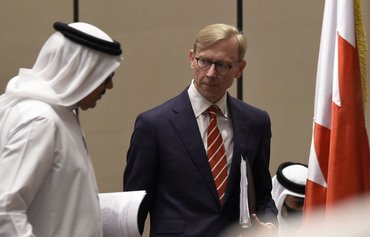The UN Security Council on Tuesday (February 25th) renewed its sanctions regime on Yemen for another year, after tense negotiations between Britain and Russia, which threatened to veto any mention, even implicit, of Iran.
Thirteen countries eventually adopted the London-drafted resolution on the sanctions, which now are in effect through February 2021. Russia and China abstained.
The sanctions plan, which would have expired Wednesday, includes the extension of the mandate of UN experts who monitor the arms embargo imposed in 2015.
The resolution also extends the measures that provide for the freezing of assets and travel bans on targeted officials.
Talks had been ongoing for a week with little apparent difficulty, but suddenly on Monday, Moscow said it could not support the text drafted by London.
It threatened to use its veto and offered a counterproposal, diplomats said.
Russia was up in arms over any mention of Iran, which backs the Houthis (Ansarallah) in their battle with government forces, which are in turn backed by the Arab coalition.
A recent report from the UN experts who monitor the arms embargo said the Houthis had been in possession since 2019 of new weapons -- drones and cruise missiles -- with "technical characteristics similar to arms" produced in Iran.
The report did not say whether the weapons were delivered to the Houthis directly by Tehran, which has repeatedly denied sending them arms.
Russia accused of 'sharp practice'
During the Security Council negotiations, Britain initially abandoned any mention of Iran.
But then -- shortly before the vote and after France and Belgium stepped in to mediate -- London agreed to omit any reference to the arms possessed by the Houthis and their similarity to Iranian weapons.
During the debate Tuesday, US representative Rodney Hunter accused Iran of smuggling weapons to the Houthis for years, thus violating the UN arms embargo on Yemen and one imposed against Iran, too.
Britain and France criticised what they called Russia's habit of threatening to use its veto power and proposing a competing text so as to have its way.
Veto power cannot become a negotiating tactic, said British Ambassador Karen Pierce.
"If countries are going to engage in negotiations with us in detail and then not support the text, then that in my mind is sharp practice," Pierce said.

![In this file photo taken September 6th, 2016, Yemeni female fighters supporting the Iran-backed Houthis hold rocket launchers during an anti-Saudi rally in Sanaa. [Mohammed Huwais/AFP]](/cnmi_am/images/2020/02/26/22708-Yemen-Houthi-arms-600_384.jpg)




